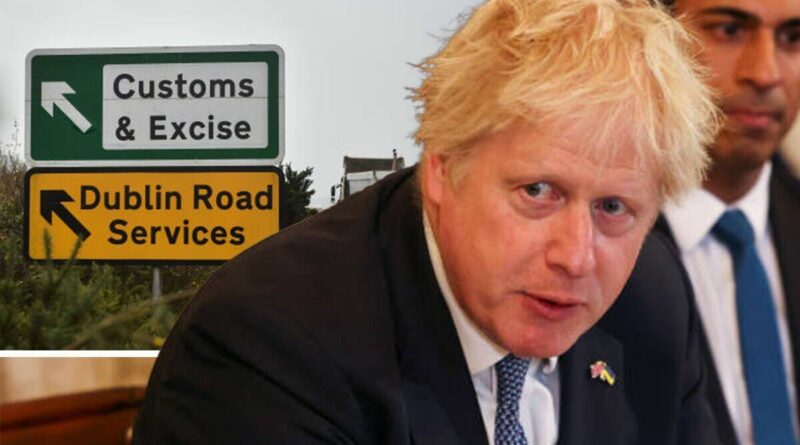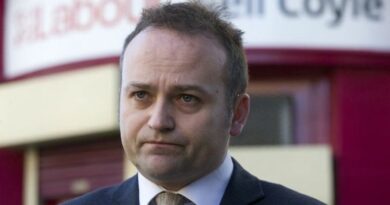Brexit: Why political ‘pressure’ has led Boris to back new Northern Ireland protocol law
Liz Truss is grilled by Kay Burley on Northern Ireland Protocol
We use your sign-up to provide content in ways you’ve consented to and to improve our understanding of you. This may include adverts from us and 3rd parties based on our understanding. You can unsubscribe at any time. More info
On Tuesday, Foreign Secretary Liz Truss told MPs the Government would set in motion a bill that will enable ministers to make limited changes to the Northern Ireland protocol. The special Brexit deal was agreed between Britain and the European Union (EU) in October 2019. But Downing Street has been attempting to renegotiate the terms after claiming it had led to a trade border in the Irish Sea.
Ms Truss said the UK’s preference is to find a negotiated solution with the EU and its chief negotiator Maros Sefcovic.
But she added that if an agreement cannot be struck the UK would take steps to “cement provisions” that are working in the protocol, while “fixing those elements that aren’t”.
Prime Minister Boris Johnson has thrown his support behind the new law and insisted it’s not his intention to “scrap” the Protocol.
So, why has the PM chosen to act outside of negotiations with the EU?


Professor Anand Menon, director of the think-tank UK in a Changing Europe, told Express.co.uk he suspects Mr Johnson’s decision is “more responsive to pressure” than frustration with protracted negotiations.
He said: “It’s very hard to see what has changed now or makes the Government act now because of course the unilateral grace period is still in operation.
“So, the protocol isn’t functioning as it was meant to now. It’s hard to avoid the conclusion that it’s political.
“That it’s partly political because of Stormont. Partly political too because the Prime Minister is in quite a weak position at the moment at home.

“And so I suspect it’s more responsive to pressure. But nothing substantive about the operation on the protocol itself has changed now.”
Ms Truss has insisted that any changes the proposed legislation makes would be legal under international law.
But Professor Menon said he was not as convinced the Government would be breaking no international laws.
He added: “I think it’s quite interesting that the Government seems to have to go around a number of legal experts to get an opinion that ‘this would be ok’.
DON’T MISS:
BBC’s Katya Adler in brutal Brexit trade war warning [ANALYSIS]
First photo of rat that tried to eat disabled pensioner as she slep [NEWS]
Struggling mum speechless after collecting chippy tea [INSIGHT]

“Legal opinion is divided. But most of the lawyers I’ve spoken to are firmly clear that if you use domestic law to override an international treaty you’re breaching that international treaty and hence international law.”
The political expert explained that while the legislation has yet to be published he has “no doubt” that any changes made to the protocol would be “very damaging for our relationship with the EU”.
Meanwhile, Mr Sefcovic said the European Commission “stands ready to continue discussions with the UK Government to identify joint solutions within the framework of the protocol”.
He said: “Should the UK decide to move ahead with a bill disapplying constitutive elements of the protocol as announced today by the UK Government, the EU will need to respond with all measures at its disposal.
“Our overarching objective is to find joint solutions within the framework of the protocol.”
Issues surrounding the protocol have also held up a new Northern Irish executive being formed after Stormont elections were held earlier in May.
The Democratic Unionist Party (DUP) has refused to enter the power-sharing arrangement until its concerns about the protocol have been addressed.
Sir Jeffrey Donaldson’s party believes the protocol is keeping Belfast more closely aligned with the EU than it is to the rest of Britain.
Source: Read Full Article


